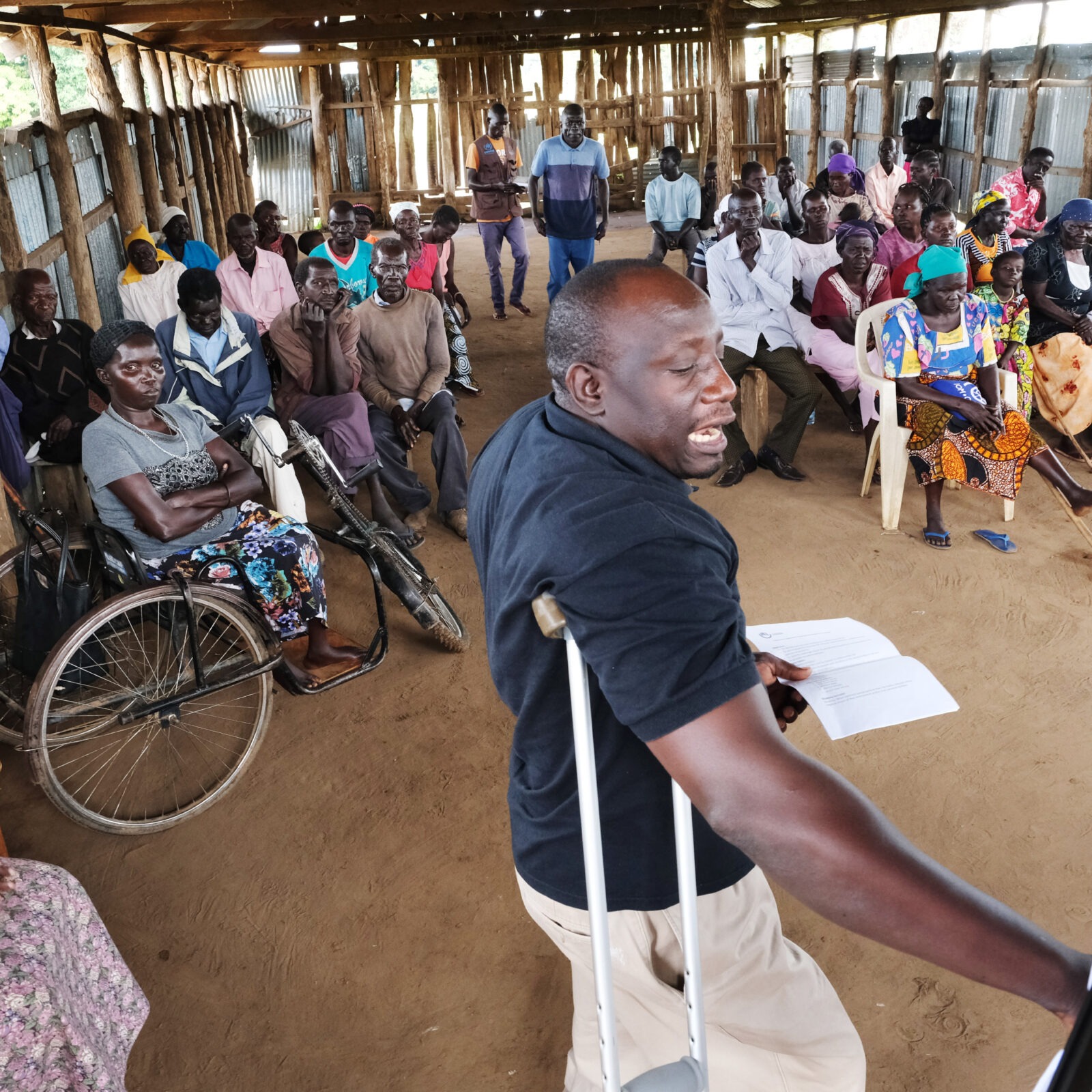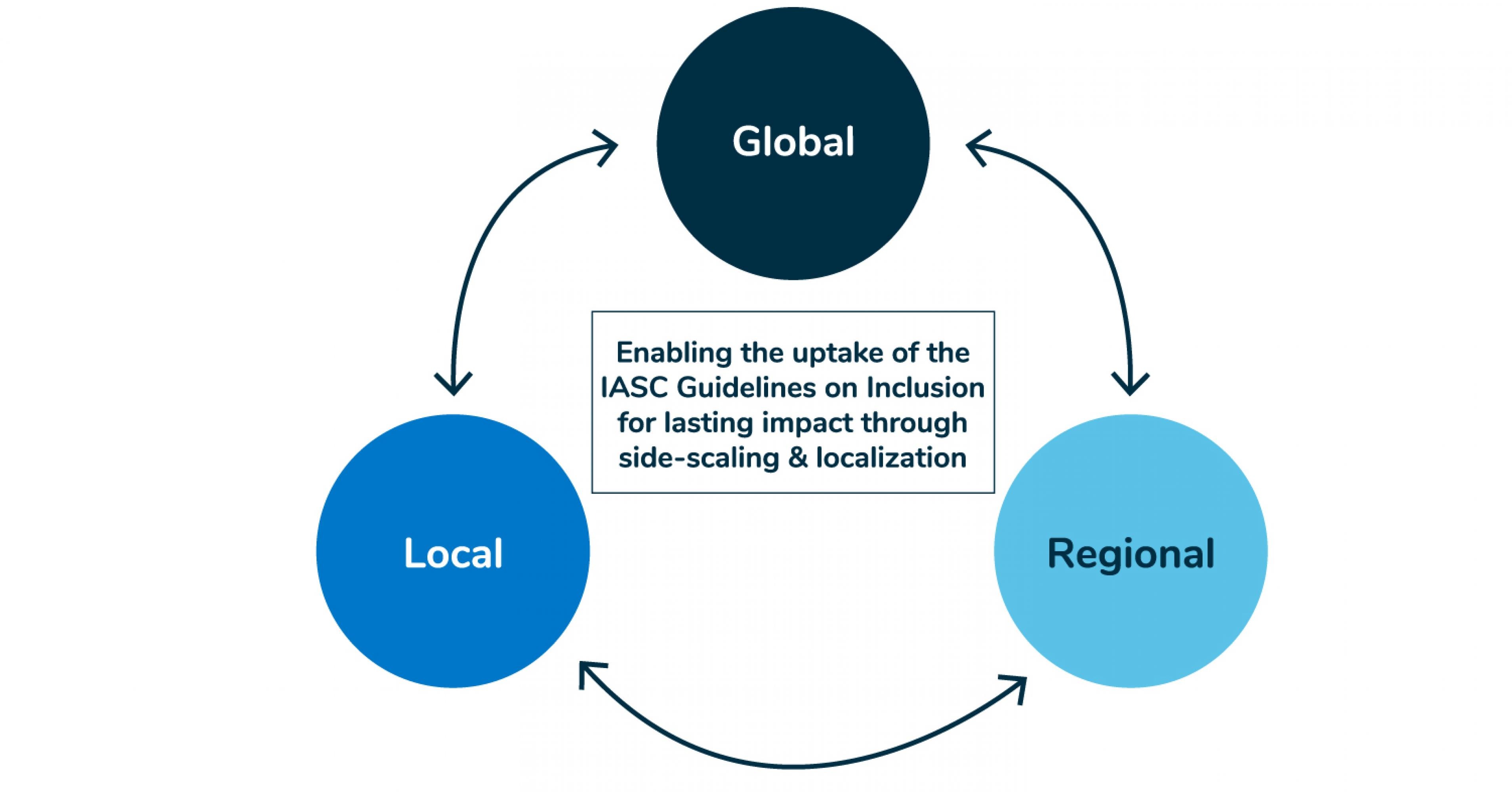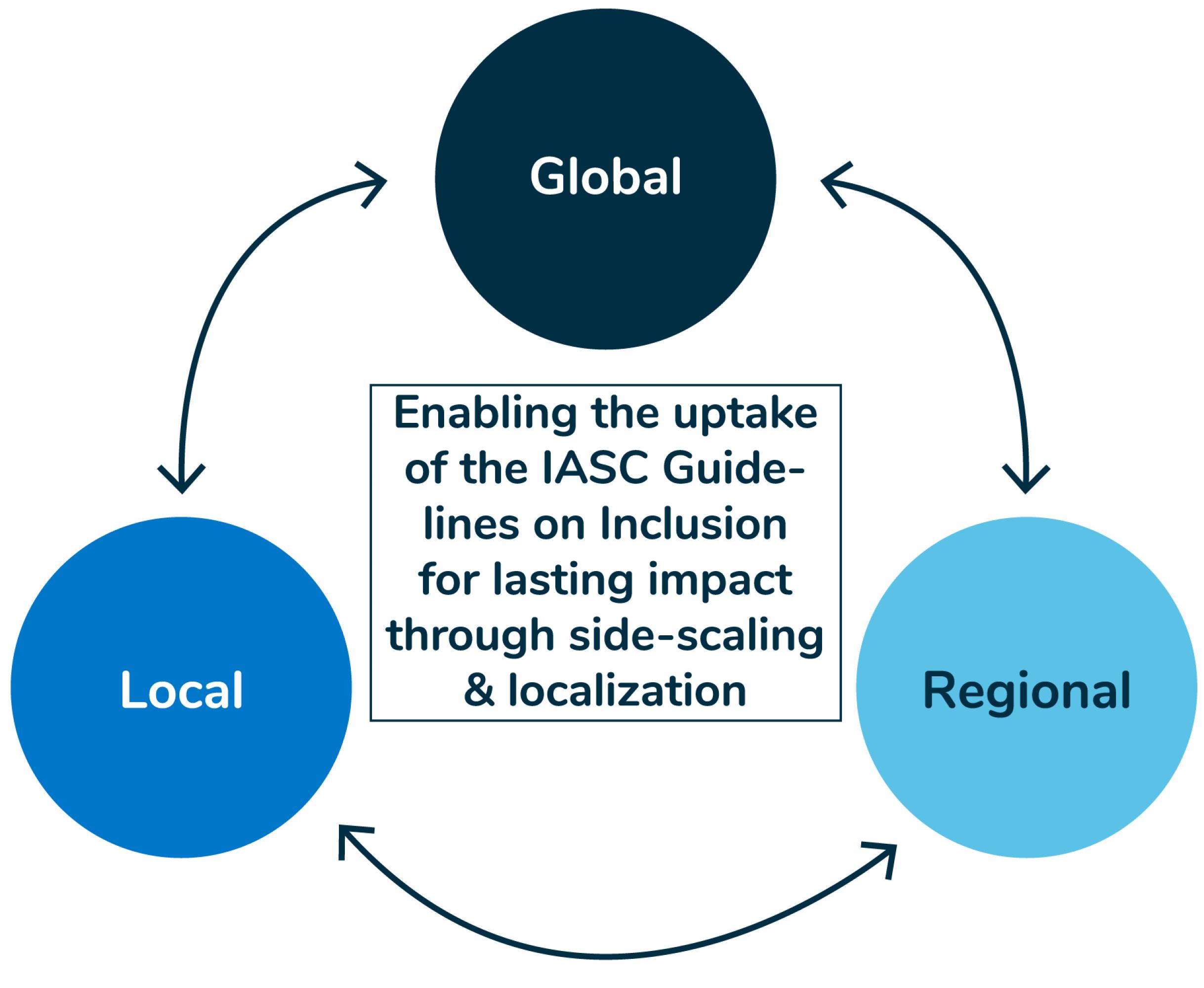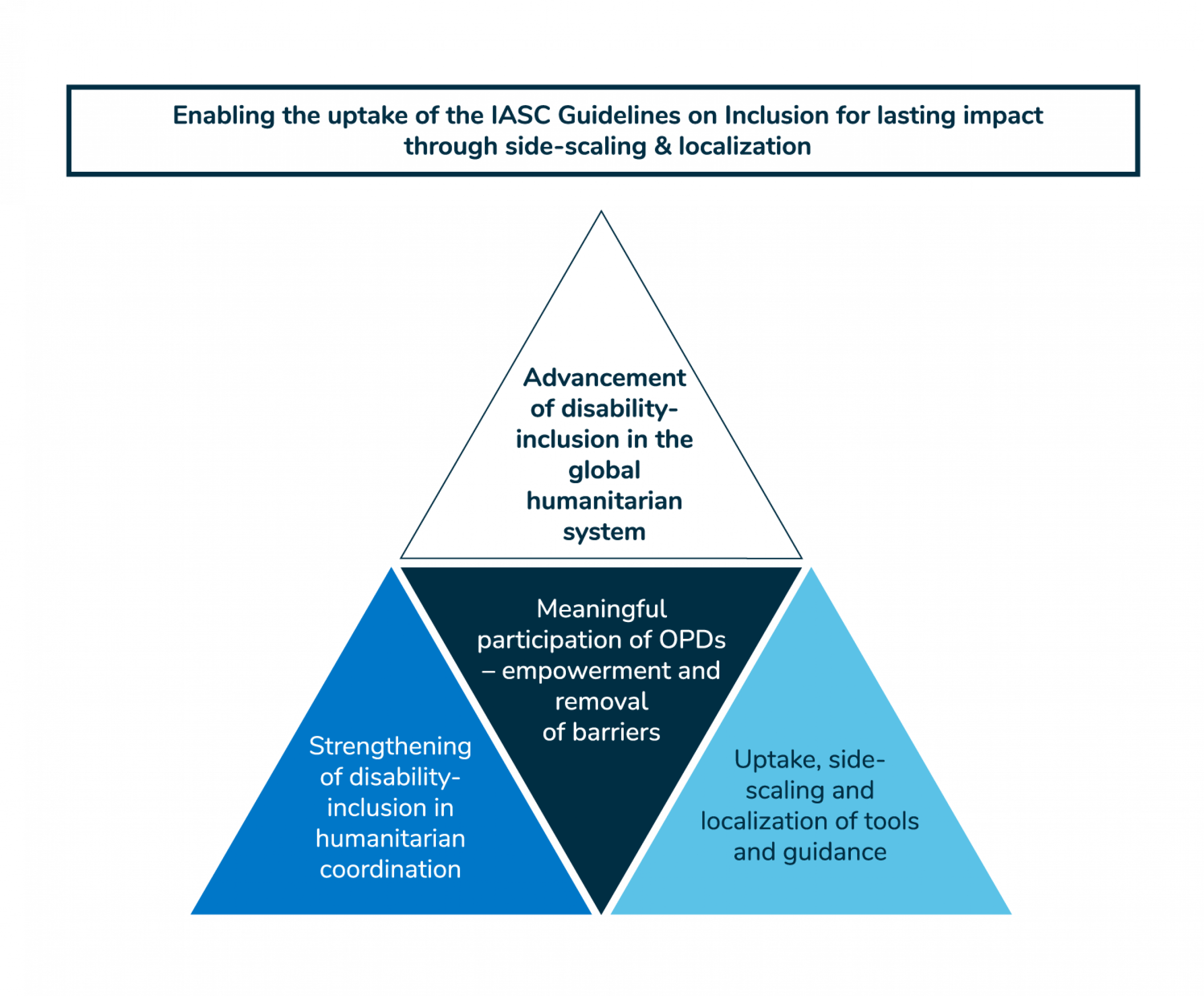
© Telemans/ HI
About the Project
Persons with disabilities, representing 1.3 billion people worldwide, are among those most at risk during and after a humanitarian crisis. Environmental, institutional, attitudinal and communication barriers prevent them from accessing life-saving assistance and participating meaningfully in the humanitarian response.
It is therefore essential to enhance knowledge and response capasities for disability-inclusive humananitarian programming and coordination on local, regional and global level.
Our Goal
We want to ensure that persons with disabilities have equitable access, can pariticipate meaningfully in humanitarian action and enjoy equal protection, so that no one is left behind! The protection and safety of persons with disabilities of all genders and ages is a humanitarian and human rights obligation.
Since 2016, the Leave no one behind! (LNOB) project series focuses on mainstreaming disability in humanitarian action through capacity strengthening, inter-agency tool development, collecting and sharing of evidence, strengthening of local level expertise and empowering persons with disabilities and Organisations of persons with disabilities (OPDs).
The cornerstone of our work are the Inter-Agency Standing Committee’s (IASC) Guidelines on the Inclusion of Persons with Disabilities in Humanitarian Action - the first system-wide globally accepted guidelines on disability-inclusive humanitarian action.
The fourth and final phase of Leave no one behind project series builds upon the successes of the previous project phases and enhances the uptake of the IASC Guidelines on Inclusion for lasting impact through side-scaling and localization.
What We Do
Phase 4 (2025-2027) of LNOB is guided by four interconnected results:
- Strengthening Disability-Inclusion in Humanitarian Coordination: Building capacities of humanitarian stakeholders and facilitating localized technical support mechanisms to ensure inclusive coordination at the project countries.
- Uptake, Side-Scaling, and Localization of Programming Tools: Development, roll-out and localization of inter-agency programming tools and guidance for inclusive Food Security, WASH and Health programming.
- Meaningful Participation of OPDs: Removing barriers to meaningful participation and equipping OPDs with the skills and opportunities to engage effectively in humanitarian response and its coordination.
- Advancing Integration of Disability-Inclusion in the Global Humanitarian System: Driving systemic change through strategic engagements and advocacy to embed inclusion of persons with disabilities into global humanitarian frameworks.
Where We Operate

© H. Villikka/ HI

© H. Villikka/ HI
Phase 4 is a combination of global, regional and local interventions. It builds on the achievements and lessons learnt from the previous project phases and aims to further advance the integration of disability-inclusion into the humanitarian system at all levels.
At the global level, the focus is on inter-agency collaboration and advocacy. At regional and local level, we continue and extend the work in our project countries in Somalia & Somaliland, South Sudan, Uganda, Niger, Nigeria and Cameroon with an additional regional approach.
At the country level, the project will jointly with OPDs, local and international non-governmental organizations and UN agencies facilitate technical support mechanism, build capacities of humanitarian stakeholders on inclusive coordination, organise sector specific trainings and tool adaptation workshops and remove barriers from OPDs to participate in the humanitarian response.
Whom We Address
Our target group includes widely seeing the whole humanitarian community, including international, regional and local humanitarian actors. We aim to strengthen humanitarian actors’ capacity and provide resources in order for persons with disabilities to access and engage meaningfully in humanitarian action.
We want to enchange the humanitarian coordination mechanisms and the humanitarian system to be more disability-inclusive. For this we work closely with the Organisations of Persons with Disabilities (OPDs) and their umbrella organisations, International Disability Alliance (IDA) and African Disability Forum (ADF).
We will complement the local level efforts with global level advocacy. This includes engaging in the work of the Disability Reference Group (DRG) and the Disability Advisory Group (DAG) and networking with other international humanitarian organisations and UN organisation.
We will also share our findings, reports and developed materials and tools within the humanitarian community on global level events.
What Have We Achieved in Phase 3

Phase 4 builds on the achievements of the previous " Phase 3-Leave no one behind!" project. Below we have collected the main results of Phase 3 from 2022-2024:
- Over 400 humanitarian professionals from approximately 50 organisations trained in disability-inclusive humanitarian programming on global and regional level.
- 23 workshops and tools adaptation sessions were conducted across the six pilot countries and 78 tools adapted to be more disability inclusive, such as needs assessment and monitoring tools.
- 310 Disability Inclusion Focal Persons were trained.
- Development and application of the RAAL Lab (Review, Adapt, Action and Learning Laboratory) methodology, an innovative method used to strengthen the capacity of humanitarian actors to adapt their tools with input from over 200 participants across 40 organisations.
- Four field research conducted and ten case studies drafted, alongside the publication of one book and two additional volumes underway.
More information on our achievements and project activities of Phase 3, are available in this news article .
